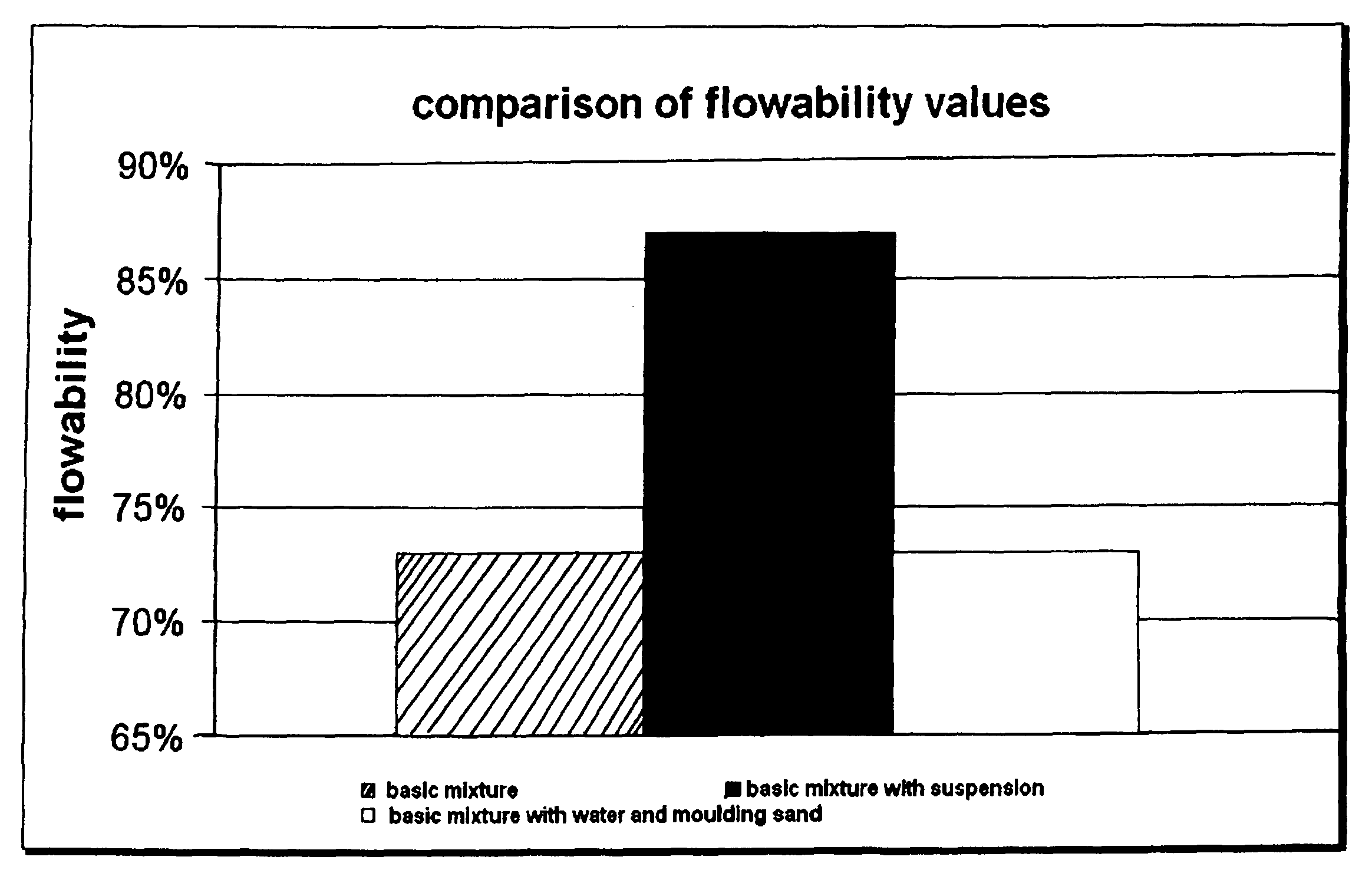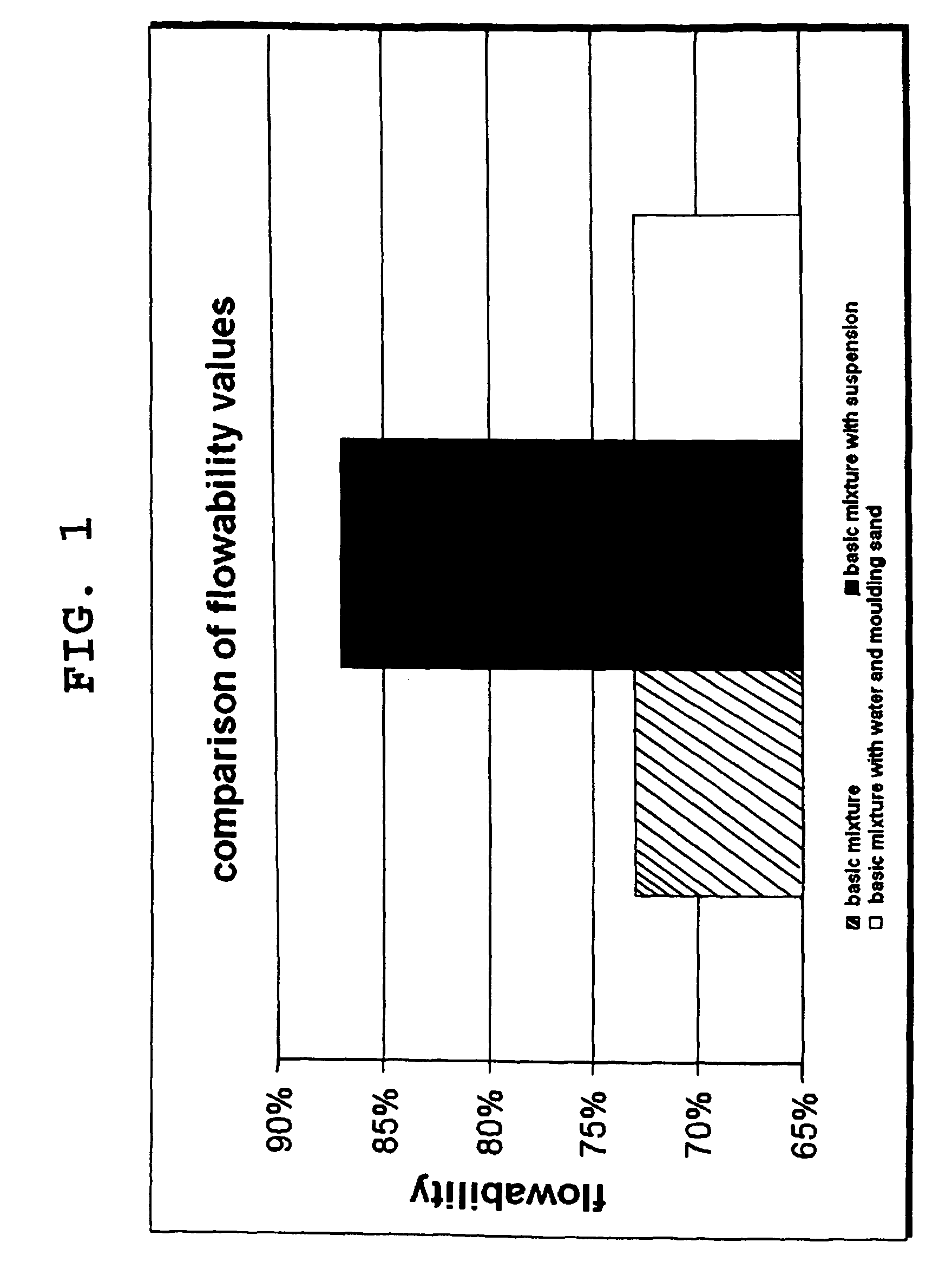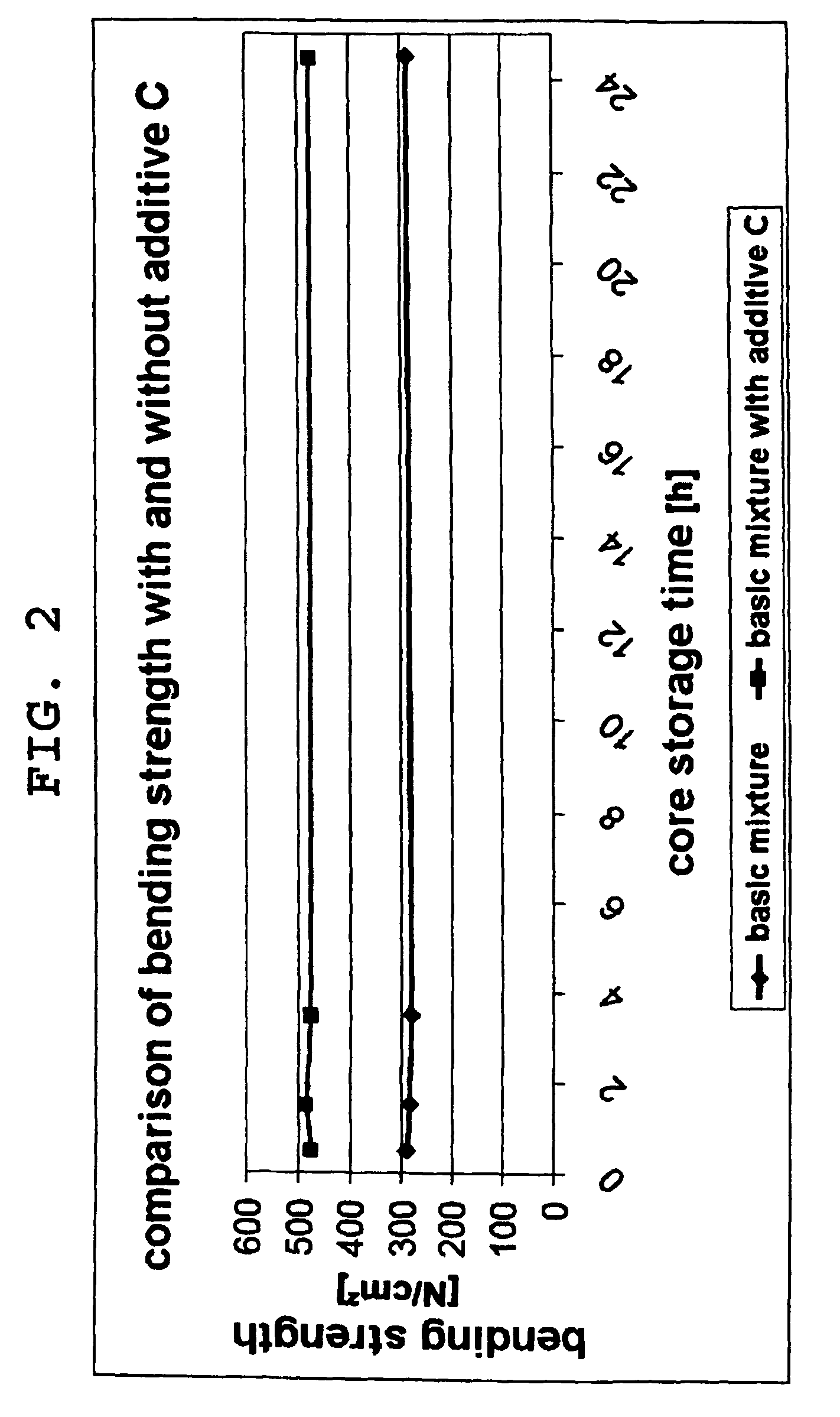Molding material mixture, molded part for foundry purposes and process of producing a molded part
a technology of molding material and molded parts, which is applied in the direction of ceramic shaping mandrels, ceramic shaping cores, coatings, etc., can solve the problems of reducing the quota, forming cracks in the nano range (substructure), and inconvenient re-treatmen
- Summary
- Abstract
- Description
- Claims
- Application Information
AI Technical Summary
Benefits of technology
Problems solved by technology
Method used
Image
Examples
Embodiment Construction
Examples Carried Out
[0034]The basic mixture used in the tests was Haltern mold sand. Below, the experimental procedure will be explained by means of a comparison with a classic binding agent system.
[0035]a) Improvement in Flowability
[0036]To explain the improved flowability, which was achieved by jointly adding nanoSiO2 (0.01-0.05 μm) and microSiO2 (1-5 μm), the following test results were compared.
[0037]1. the basic mixture without the suspension according to at least one possible embodiment, hereafter also referred to as additive C;
[0038]2. the basic mixture with suspension which is composed of a suspension consisting of or consisting essentially of or comprising 25% nanoSiO2, 25% microSiO2 and 50% water, and
[0039]3. the basic mixture with a quantity of water equivalent to the suspension.
[0040]The term “basic mixture” indicates a mixture of mold sand, NaOH and alkali silicate binding agent in changing compositions.
[0041]1. Basic Mixture of a Classic Binding Agent System
[0042]Halte...
PUM
| Property | Measurement | Unit |
|---|---|---|
| grain size | aaaaa | aaaaa |
| grain size | aaaaa | aaaaa |
| grain size | aaaaa | aaaaa |
Abstract
Description
Claims
Application Information
 Login to View More
Login to View More - R&D
- Intellectual Property
- Life Sciences
- Materials
- Tech Scout
- Unparalleled Data Quality
- Higher Quality Content
- 60% Fewer Hallucinations
Browse by: Latest US Patents, China's latest patents, Technical Efficacy Thesaurus, Application Domain, Technology Topic, Popular Technical Reports.
© 2025 PatSnap. All rights reserved.Legal|Privacy policy|Modern Slavery Act Transparency Statement|Sitemap|About US| Contact US: help@patsnap.com



